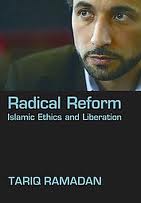By Dr Ahmad Farouk Musa*
 “Principles can be immutable, absolute, and eternal, but their implementations in time or in history–historical models–are relative, changing and in constant mutation. Thus, the principles of justice, equality, rights and human brotherhood that guided the Prophet of Islam indeed remain the references beyond history, but the model of the city of Medina founded by Muhammad in the seventh century is a historical realization linked to the realities and requirements of his time.
“Principles can be immutable, absolute, and eternal, but their implementations in time or in history–historical models–are relative, changing and in constant mutation. Thus, the principles of justice, equality, rights and human brotherhood that guided the Prophet of Islam indeed remain the references beyond history, but the model of the city of Medina founded by Muhammad in the seventh century is a historical realization linked to the realities and requirements of his time.
Muslims must, in the course of history, try to remain faithful to those principles and strive to implement them as best they can according to the requirements of their time but they cannot merely imitate, reproduce, or duplicate a historical model that was adapted for a particular time but no longer corresponds to the requirements of their own.”-Tariq Ramadan in Radical Reform: Islamic Ethics and Liberation, p.19
While the world continues to evolve, we are witnessing one of the most important developments in the Muslim world. The rise of AKP in Turkey, the en-Nahdah or Renaissance Party in Tunisia, the Freedom and Justice Party in Egypt and al-Adl wal-Ihsan in Morocco are basically the re-emergence of Islamism with a new face and a new spirit.
It would not be a gross exaggeration to portray it as a re-emergence of the rationalist school of thought – or known previously as the mu’tazilites – in the Islamic world. As the rationalists believed that one of God’s crucial attributes is justice, hence man must have free will. Man must utilize his God-given faculty of reason to decipher between right and wrong and to establish justice.
And since God is absolutely just, He would not reward or punish his creatures without reason. Human would receive reward in heaven or punishment in hell as a result of their free choice. Anyone who believes in a just God had to accept that man is the creator of his deeds.
The rationalism of the Mu’tazilites led them to conclude that God, and thus, His universe, operated according to rational laws, a premise that called on scientific inquiry. From this, emerged the scientific boom of the Medieval Islamic world, the zenith was the establishment of Bait al-Hikmah or House of Wisdom.
Another important theological basis for the Mu’tazilites was that the Qur’an was created which lead to the interpretative conclusion that the Qur’an can be “interpreted” and NOT merely “implemented” or “applied”.
This literal translation of the Qur’an is mainly the basis for the current predominantly literalist or Salafist trend in the Muslim world. Because of this literalist trend, many Muslims are trapped in the Medinan State concept or as what was mentioned by the esteemed Prof Tariq Ramadan in his book Radical Reform, obsession with models rather than principles.
Basically Muslims require thinking, and rethinking again about this important agenda. Man must be able to exercise God given rational faculty in order to face the challenges of modernity. And this forms the basis of reform that we aspire to.
“I desire nothing but reform (al-Islah) as far as I am able. There is no guidance for me except from Allah” [Surah Hūd 11: 88]
*Dr Ahmad Farouk Musa is Chairman and Director,Islamic Renaissance Front (IRF). This is the text of his Speech during Tariq Ramadan Hi-Tea Event “Rethinking Islamic Reform” at the Renaissance Hotel, Kuala Lumpur on July 14, 2012.


